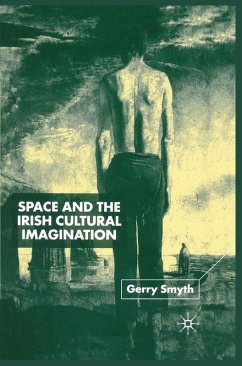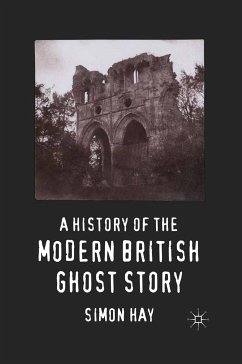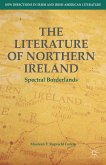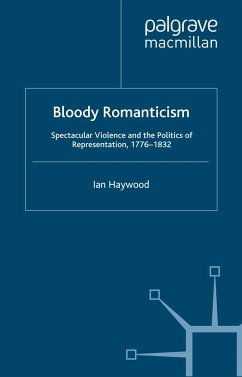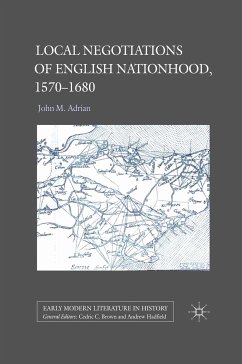This book reconstitutes the category of 'space' as a crucial element within contemporary cultural, literary and historical studies in Ireland. The study is based on the dual premise of an explosion of interest in the category of space in modern cultural criticism and social inquiry, and the consolidation of Irish studies as a significant scholarly field across a number of institutional and intellectual contexts. Besides a methodological/theoretical introduction and extended case studies, the book includes an auto-critical dimension which extends its interest into the fields of local history and life-writing.
Dieser Download kann aus rechtlichen Gründen nur mit Rechnungsadresse in A, B, BG, CY, CZ, D, DK, EW, E, FIN, F, GR, HR, H, IRL, I, LT, L, LR, M, NL, PL, P, R, S, SLO, SK ausgeliefert werden.
'In this book, Gerry Smyth revises the conventional discussions of time and place, history and geography in Irish writing by elaborating this subtle and adventurous exploration of Bachelardian space. This innovatory approach lends light and depth to his critique of Irish cultural history and opens possibilities for a reformulation of the ways in which the interrelations between history and literature have been understood.' - Seamus Deane, Notre Dame University, Illinois
'Over the last decade, the celebrated Irish obsession with place seems to have shifted into a concern with space. Fuelled by the greater mobility of the population, in and out of Ireland, a new attention to the Irish 'diaspora', and by the economic prosperity that has recast Irish relations to global affairs, this concern with space speaks to a significant transformation in Irish cultural sensibilities. This phenomenon is evident in literature, film, music and in vernacular culture....This book surelymakes a vital contribution to the 'cognitive mapping' of Ireland in the new century.' - David Lloyd, Scripps University, California
'Over the last decade, the celebrated Irish obsession with place seems to have shifted into a concern with space. Fuelled by the greater mobility of the population, in and out of Ireland, a new attention to the Irish 'diaspora', and by the economic prosperity that has recast Irish relations to global affairs, this concern with space speaks to a significant transformation in Irish cultural sensibilities. This phenomenon is evident in literature, film, music and in vernacular culture....This book surelymakes a vital contribution to the 'cognitive mapping' of Ireland in the new century.' - David Lloyd, Scripps University, California

